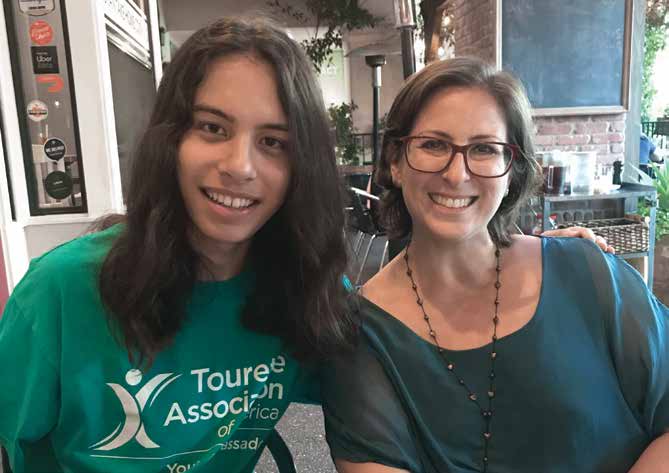Understanding Tourette

There is, at present, no cure for Tourette syndrome. People with this condition are often teased mercilessly. Research shows that 1 in 100 school-aged kids in the United States suffers from a tic condition or Tourette syndrome, a neurological disorder characterized by motor and vocal tics, hiccups, eye twitches, head nodding, stuttering, finger snapping, throat clearing and sniffing. As much as 50% of these cases go undiagnosed.
Brayden Durbin began displaying tics (involuntary movements and sounds) at 3 years old. His pediatrician felt these would eventually pass. They didn’t. In fact, over time, his condition grew worse. Brayden finally received a Tourette diagnosis at age 12. “The media and television portray Tourette as the “cursing” disease. The truth is that only 10% of all patients with Tourette experience that symptom.” Brayden adds, “Tourette Syndrome also comes with a lot of issues you can’t see or hear, such as anxiety, OCD and depression.”
In search of information, Brayden’s mom, Mandy, reached out to the Tourette Association of America (TAA). “It was empowering for us both,” she says. “I didn’t realize how much I needed to have my own support network of moms and dads who lived what we lived.”
Mandy and Brayden attended a training program in Arlington, Virginia. “It was a priceless, life-changing experience for us both,” says Mandy. She encourages others to take advantage of local TAA chapters and camps for kids in Southern California.
Brayden applied for the TAA’s Youth Ambassador Program at 15. “I had a very negative experience at school that semester and wanted to find a way to help myself and other kids going through the same thing,” says Brayden. “I hope people will think before they react or say something about someone experiencing tics. It’s easy to judge a person, but don’t do it based on just what you may see or hear.” Knowledge is power. The more the public understands this disease, the less likely they’ll bully or shun these individuals. Those looking to connect with TAA can visit their website at tourette.org.


